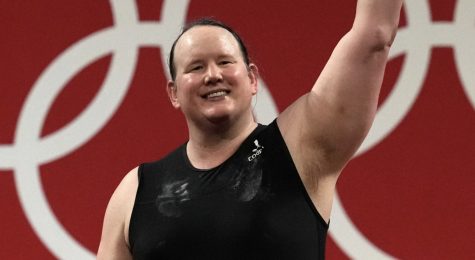Transgender Athletes In Sports
The ongoing debate about gender inclusivity in athletics
In recent years, the topic of transgender athletes in sports has become a highly debated issue. As more athletes publicly come out as transgender, questions arise about how their participation in sports should be handled.
While some argue that transgender athletes should be allowed to compete in the gender category they identify with, others worry about the potential physical advantages that may exist.
The debate over transgender athletes in sports continues to grow as more athletes come out as transgender and push for their right to compete in the gender category they identify with.
As transgender rights become a more prominent issue, the issue of transgender athletes in sports has become a hotly debated topic with no clear consensus.
Supporters of transgender athletes argue that everyone has the right to participate in sports and that excluding certain individuals based on their gender identity is discriminatory. They argue that gender identity, not biological sex, should be the determining factor in which category an athlete competes in.
Opponents of transgender athletes in sports express concern that biological males who transition to female may have physical advantages over biological females, creating an unfair advantage. They argue that allowing transgender athletes to compete in the gender category they identify with could potentially harm the integrity of the sport and impact fair competition.
Many sports organizations have attempted to address this issue by creating policies and guidelines for the inclusion of transgender athletes. These policies typically involve a set of criteria that athletes must meet in order to compete in the gender category they identify with, such as undergoing hormone therapy for a specific amount of time or undergoing gender confirmation surgery.
Here is what professional trans/non trans athletes/ have to say about this topic:
“I believe that everyone has a right to participate in sports, regardless of their gender identity,” says Chris Mosier, a transgender triathlete and advocate for transgender athletes’ rights. “I also believe that sports should be inclusive and welcoming to all athletes, regardless of their gender identity.”
“I think it’s important to ensure a level playing field, and that means taking into account any physical advantages that may exist,” says Martina Navratilova, a tennis champion and vocal advocate for fair play in sports. “I don’t believe that we should exclude transgender athletes from competition, but we need to make sure that the rules are fair for everyone.”

“It’s frustrating to be constantly questioned about my abilities and whether I have an unfair advantage,” says Laurel Hubbard, a transgender weightlifter from New Zealand. “I have worked hard to get to where I am, and I believe that I deserve to compete just like any other athlete.”
“I think it’s important to consider the impact that allowing transgender athletes to compete in women’s sports could have on the future of women’s sports,” says Allyson Felix, an Olympic gold medalist in track and field. “We need to make sure that women’s sports remain a space where women can excel and be recognized for their achievements.”
Here’s what anonymous coaches at North Hollywood High School have to say about this topic: “To me it doesn’t matter whether the athlete is trans, homosexual or straight, everyone deserves the opportunity to play sports at any level, as long as they can perform on the field and be a good teammate, it shouldn’t matter!” Anonymous coach #1 also stated “Depending on the sport, there can be a disadvantage when transitioning. Not necessarily the gender.”
“I don’t see a problem with transgender athletes in sports personally but at the end I think muscle density is a factor and at the end it wouldn’t be fair.” is what Anonymous coach #2 had to say about the topic
Anonymous coach #3 stated “In the end it’s biology and you can get testosterone or estrogen blockers but no one knows how much it blocks out or how long you’ve had it in your system.” Anonymous coach #3 expressed “I personally don’t have an issue but I don’t think in the end it’s fair to the players or the athlete themselves.”
The debate over transgender athletes in sports is likely to continue for some time, as the issue raises complex questions about gender, fairness, and inclusivity. Ultimately, the decision about how to handle transgender athletes in sports will likely involve a careful consideration of all these factors, with the goal of creating a level playing field for all athletes.
Your donation will support the student journalists of North Hollywood High School. Your contribution will allow us to purchase equipment and cover our annual website hosting costs.
“I am a freshman at NHHS in the NHA and enjoys lifting weights.”

